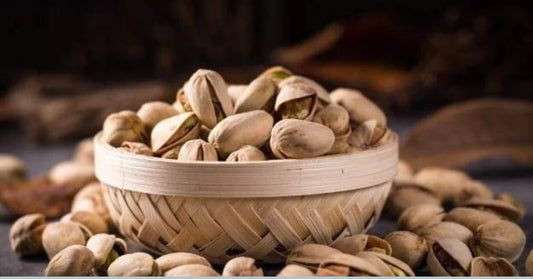What are the health benefits of drinking cashew milk compared to regular milk?
Cashew milk offers heart-healthy fats, essential vitamins, and fewer calories compared to regular milk, making it a nutritious alternative.
Drinking cashew milk provides several health benefits:
- Heart Health: Contains monounsaturated fats that promote heart health.
- Lower Calories: Generally lower in calories than whole milk.
- Vitamins: Rich in vitamins E and D.
- Dairy-Free: Ideal for those with lactose intolerance or dairy allergies.
- Antioxidants: Contains antioxidants that help protect against disease.
How can cashew milk be used in cooking and baking?
Cashew milk can be used in smoothies, soups, sauces, and baked goods to add a creamy texture and nutty flavor.
Cashew milk is versatile and can be used in various recipes:
- Smoothies: Adds creaminess and nutritional value.
- Soups: Use as a base for creamy soups.
- Sauces: Perfect for creating rich, dairy-free sauces.
- Baking: Substitute for dairy milk in baked goods.
- Coffee and Tea: A great non-dairy creamer option.
Is cashew milk a good option for people with lactose intolerance or dairy allergies?
Yes, cashew milk is a great dairy-free alternative for people with lactose intolerance or dairy allergies, offering similar texture and taste without the allergens.
Cashew milk is suitable for:
- Lactose Intolerance: Free from lactose, making it easy to digest.
- Dairy Allergies: Does not contain dairy proteins like casein or whey.
- Vegan Diets: An excellent plant-based milk option.
- Allergen-Friendly: Ensure it's made in a facility that handles no other allergens.
- Rich in Nutrients: Still provides essential nutrients found in traditional milk.
What are the nutritional differences between cashew milk and other plant-based milks like almond or soy milk?
Cashew milk is lower in calories than almond milk and contains fewer proteins than soy milk, but it offers a creamy texture and is rich in healthy fats and vitamins.
Comparing cashew milk to other plant-based milks:
| Nutrient | Cashew Milk | Almond Milk | Soy Milk |
|---|---|---|---|
| Calories (per cup) | 25-50 | 30-50 | 80-100 |
| Protein | 1 gram | 1 gram | 7 grams |
| Fat | 2-4 grams | 2-3 grams | 4 grams |
| Vitamins | Rich in E, D, and calcium (if fortified) | Rich in E, D, and calcium (if fortified) | Rich in B vitamins, D, and calcium (if fortified) |
| Texture | Creamy and smooth | Light and slightly watery | Thicker and creamy |

How can I make homemade cashew milk and what ingredients do I need?
To make homemade cashew milk, blend soaked cashews with water and optionally sweeten with dates or vanilla. It's a simple and fresh alternative to store-bought options.
Ingredients and steps to make homemade cashew milk:
-
Ingredients:
- 1 cup raw cashews
- 4 cups water
- Optional: 2-3 dates for sweetness
- Optional: 1 tsp vanilla extract
- Soak Cashews: Soak cashews in water for at least 4 hours or overnight.
- Blend: Drain and rinse cashews, then blend with 4 cups of water until smooth.
- Sweeten: Add dates and vanilla extract if desired, and blend again.
- Strain (Optional): For an extra smooth texture, strain the milk using a nut milk bag or fine mesh strainer.
- Store: Pour into a sealed container and refrigerate for up to 4-5 days.
Conclusion
Cashew milk is a versatile and nutritious dairy-free alternative that fits well into a variety of diets. Its creamy texture, rich flavor, and numerous health benefits make it an excellent choice for those seeking a lactose-free option. Whether you purchase it or make it at home, incorporating cashew milk into your diet can provide essential nutrients and enhance your culinary creations.















